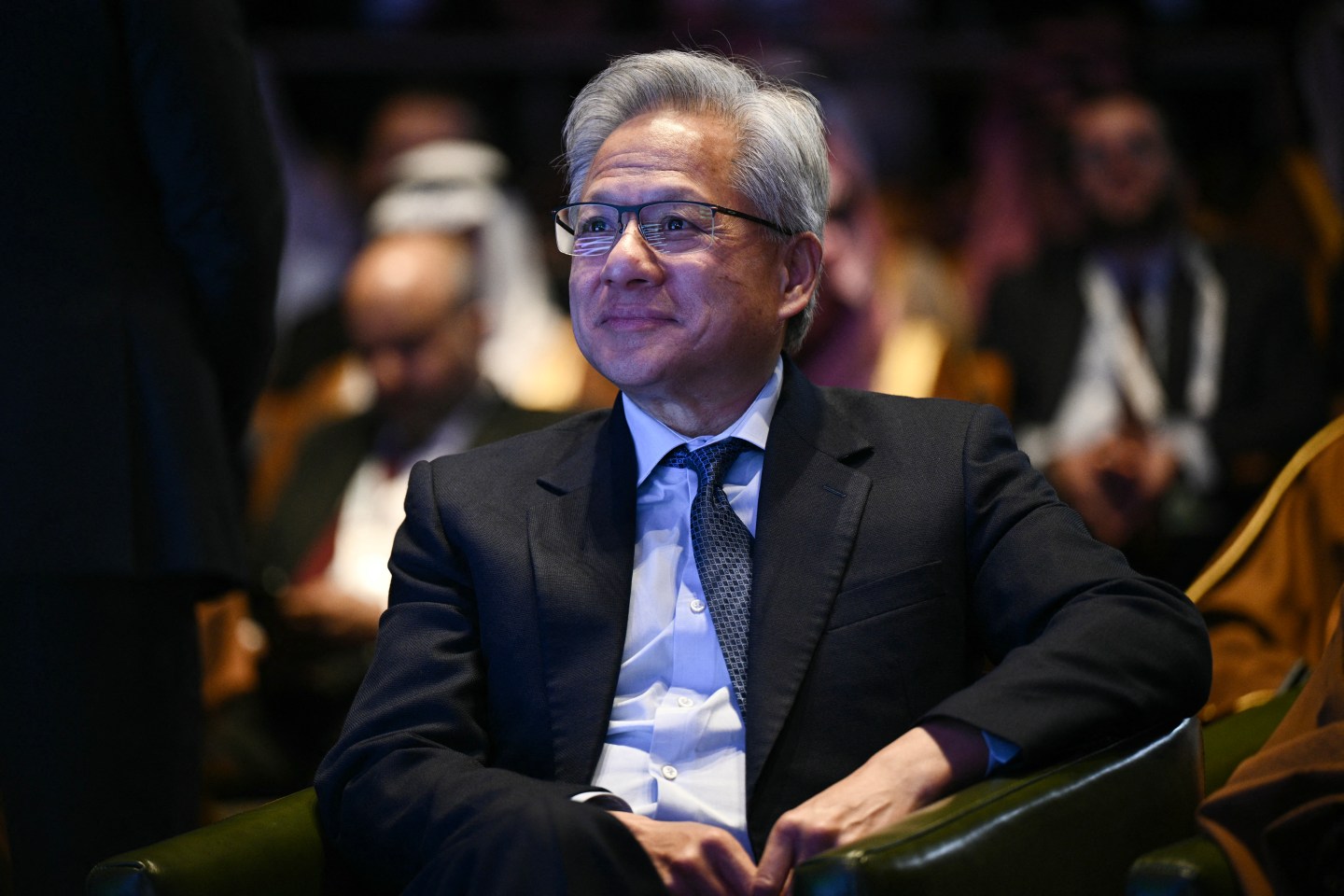Good morning. Anyone tired of trying to figure out which streaming service has the thing you want to watch?
This sports fan has been watching as the major leagues in the U.S. re-up their contracts with media-tech giants and boy, it’s a mixed bag.
On the one hand, Apple is going all-in on its existing Major League Soccer deal (perhaps in an attempt to expedite its end) by offering all games without an additional paywall. Business challenges aside, the simplicity is irresistible.
On the other hand, Major League Baseball just put together deals that will have some games on ESPN, others on NBC’s Peacock, and a handful of special matches—e.g. this year’s “Field of Dreams” game featuring my Philadelphia Phillies—on Netflix.
You practically need a printed guide of program listings to figure out what’s where. You know, come to think of it…
Today’s tech news below. —Andrew Nusca
Want to send thoughts or suggestions to Fortune Tech? Drop a line here.
The AI boom continues as Nvidia tops estimates (again)

It felt like everyone in tech was waiting with bated breath for Nvidia’s Q3 earnings report to drop. Would it signal the end of the AI boom? Or would the party continue?
Answer: Party on, Garth.
Nvidia on Wednesday reported Q3 earnings and revenue that topped Wall Street’s expectations. What’s more, the company offered stronger-than-expected revenue guidance for Q4, sending Nvidia shares up 4% in after-hours trading.
Quarterly revenue came in at $57 billion, well above the $55 billion Wall Street wanted. Earnings per share were $1.30 versus the predicted $1.25. The Q4 sales outlook is $65 billion; analysts were looking for $62 billion.
“There’s been a lot of talk about an AI bubble,” CEO Jensen Huang told investors on a call. “From our vantage point, we see something very different.”
Nvidia’s fiscal results come as its partner peers—including Alphabet, Amazon, Meta, and Microsoft—said they’d spend even more on AI infrastructure and talent in 2026 after an improbably spendy 2025.
“The hyperscalers are spending because they know they have to,” Futurum CEO Daniel Newman tells Fortune. “2026 is sold out. And 2027 demand will follow suit.” —AN
Yann LeCun is finally, officially leaving Meta to found a startup
Tech’s worst-kept secret is finally out: Yann LeCun is leaving Meta.
One of the godparents of the AI revolution, LeCun joined the Facebook-Instagram-WhatsApp parent more than a decade ago to create Facebook’s AI Research lab.
FAIR, as it’s known, produced a number of achievements in computer vision, deep learning, and language modeling that have since been integrated into Meta’s giant media machine.
But as CEO Mark Zuckerberg radically reshaped Meta’s AI organization earlier this year, it became clear that LeCun may not be as central to the effort as he once was.
Recent interviews with LeCun, implying disagreement with the company’s AI direction, only deepened the feeling that he might jump ship.
LeCun said Wednesday that he will start a new venture focused on “advanced machine intelligence,” or AMI, research.
“The goal of the startup is to bring about the next big revolution in AI: systems that understand the physical world, have persistent memory, can reason, and can plan complex action sequences,” he wrote in a social media post.
Details are scant, but LeCun says “Meta will be a partner of the new company”—so if there was any ill will, it’s all water under the bridge.
He’ll remain at Meta through the end of the year. —AN
Nokia will split its AI operations from its telecom business
An icon of the mobile revolution says it plans to separate its legacy telecom equipment business from its fast-growing AI operation.
Nokia said Wednesday that it would divide the company into two, creating a “network infrastructure” division for its cloud and data center groups and a “mobile infrastructure” unit to house its classic telecommunications network operations.
The news comes mere weeks after the chipmaking giant Nvidia took a $1 billion stake in Nokia. That deal sent shares of the Finnish firm up by some 20%.
This time, investors reacted poorly to the restructuring—which included ambitious long-term targets and an acknowledgement that 5G spending in its other unit was slowing—sending Nokia shares down by as much as 9%.
“When you look at the longer-term potential of AI, I think this is a supercycle,” CEO Justin Hotard said on CNBC earlier today. “I think this [will be] a secular growth trend for many years.” —AN
More tech
—EU proposes changes to GDPR. Among them: Simpler cookie permission pop-ups and a less stringent AI Act.
—Trump preps an executive order to ban states from obstructing AI industry growth.
—xAI partners with the Saudis. Elon Musk says his company will develop a 500-megawatt data center with state-backed AI startup Humain.
—Russian Internet provider Media Land sanctioned. The U.S., U.K., and Australia say the company supports ransomware and cybercrime groups.
—UMG, WMG, Sony license content to Klay. The startup’s streaming service promises to let users remake songs using AI tools.
—Kraken confidentially files for IPO. The crypto company hopes to enter the public markets before the U.S. midterm elections.
—Larry Summers resigns from the OpenAI board. The former Treasury secretary was among the boldfaced names wrapped up in the latest release of Jeffrey Epstein emails.












